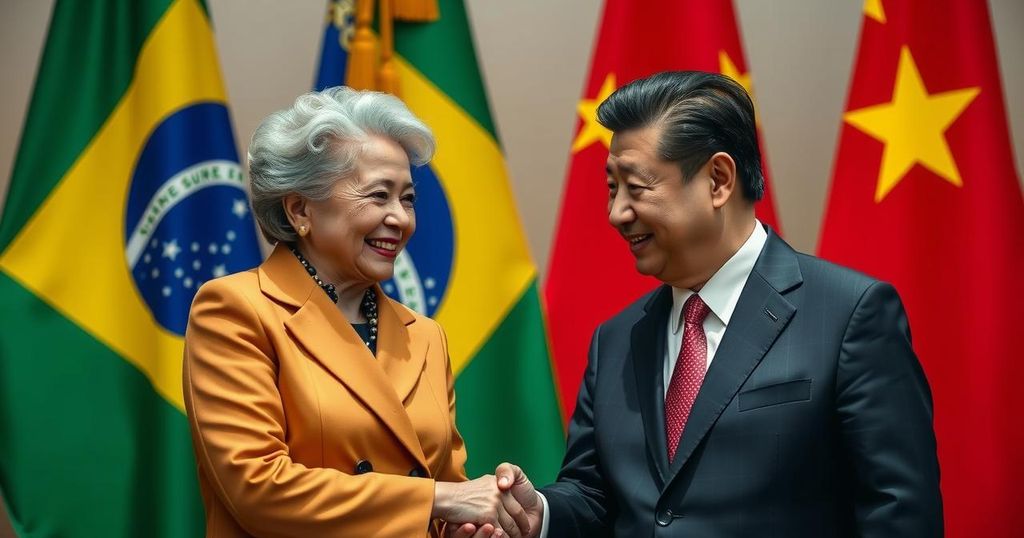Chinese President Xi Jinping and Brazilian President Luiz Inacio Lula da Silva have signed nearly 40 trade and development agreements aimed at deepening cooperation between Brazil and China. This collaboration underscores a new phase in bilateral relations and reflects Lula’s strategy to enhance Brazil’s global standing while fostering economic ties with major powers.
In a significant move to strengthen bilateral relations, Chinese President Xi Jinping and Brazilian President Luiz Inacio Lula da Silva have entered into nearly 40 trade and development agreements during their recent discussions in Brasília. This fruitful encounter between the two leaders marks a pivotal moment in Brazil-China relations, showcasing their commitment to enhancing cooperation in trade, technology, and environmental initiatives. President Xi emphasized the importance of this collaboration, stating his readiness for both nations to become ‘golden partners.’ In turn, President Lula expressed his confidence that this partnership will not only meet but exceed expectations, heralding a new phase in their bilateral relations. The visit by President Xi follows his participation in significant international summits, including the G20 in Rio de Janeiro and the APEC summit in Lima, where he asserted China’s influence as a major player in global trade. While President Biden’s absence from the group portrait at the G20 summit drew attention to the shifting dynamics in global leadership, Lula is actively seeking to redefine Brazil’s position on the world stage, balancing relationships with both traditional allies like the United States and emerging global powers such as China and Russia. During a ceremonious welcome, Lula received Xi with full honors, reflecting the importance of this meeting. The bilateral trade between Brazil and China has flourished, surpassing $160 billion in the previous year. This relationship primarily consists of Brazil exporting natural commodities, such as soybeans, to China, while Chinese exports to Brazil include advanced technology products, indicating a mutually beneficial economic partnership.
The recent meeting between Presidents Xi Jinping and Luiz Inacio Lula da Silva is set against the backdrop of Brazil’s strategic efforts to enhance its global relationships. China has emerged as a key trading partner and investor in Latin America, particularly under Lula’s leadership, which contrasts with the prior administration’s more US-centric foreign policy. The newly signed agreements are expected to fortify Brazil’s economic ties with China while simultaneously allowing Lula to pursue a multifaceted geopolitics that includes maintaining connections with the United States amidst a rapidly changing global landscape.
The signing of numerous trade and development agreements between Brazil and China signifies a momentous advancement in their bilateral relations. As both leaders commit to deepening their partnership, the collaboration is positioned to yield significant economic benefits for Brazil, notably in the trade of primary commodities and technology imports. Lula’s administration is keen on establishing Brazil as a pivotal player in global geopolitics, and the strengthening of ties with China reflects this ambition.
Original Source: www.aljazeera.com







